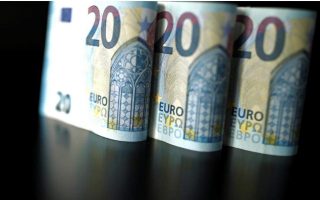New NPLs to reach 10 bln euros

The coronavirus pandemic will result in a new wave of nonperforming loans that could reach up to 10 billion euros, an online debate on bad loans heard on Wednesday. Most of them are expected to originate from the sum of recently rearranged loans that will turn nonperforming again.
The executive president of FPS, Theodoros Kalantonis, told the event, titled “Bad Loans: The New Reality,” that the economic crisis from the pandemic will create a new generation of bad loans of between 7 and 10 billion euros. NPLs will expand by 10-15 percent and will be added to the existing stock of €70 billion. This is a prospect that will bring Greece closer to Italy’s levels, where a similar increase will also take place according to a survey by Scope.
Kalantonis explained that three-quarters of the loans whose borrowers had fallen behind in payments and entered some form of arrangement will return to the NPL pool. Fewer new NPLs will originate from portfolios of performing credit.
The head of Intrum, Giorgos Georgakopoulos, told the debate organized by the Tsomokos corporate communications enterprise that a new wave of bad loans is on the way, stressing that the main job of banks and services in the coming months will be to contain the spread of bad credit. This is another form of epidemic, Georgakopoulos commented, saying that its management will be crucial to securing the necessary time to tackle it efficiently.
The representatives of the country’s two biggest loan management companies defended the role of banks in managing the previous financial crisis of the 2010s. However, as Georgakopoulos noted, “loan arrangements function effectively in an environment of forced execution,” and the objective the planned bankruptcy code should take into account is the protection of households’ homes and not residence ownership.
“Before the decade-long economic crisis, there were 60,000 auctions per year in our country, when the bad loans index stood at just 5 percent,” Kalantonis noted. “Between 2010 and 2015 auction froze, and in 2019, with the index at 40 percent, just 20,000 auctions took place,” he pointed out, stressing the negative impact on the payment culture.





